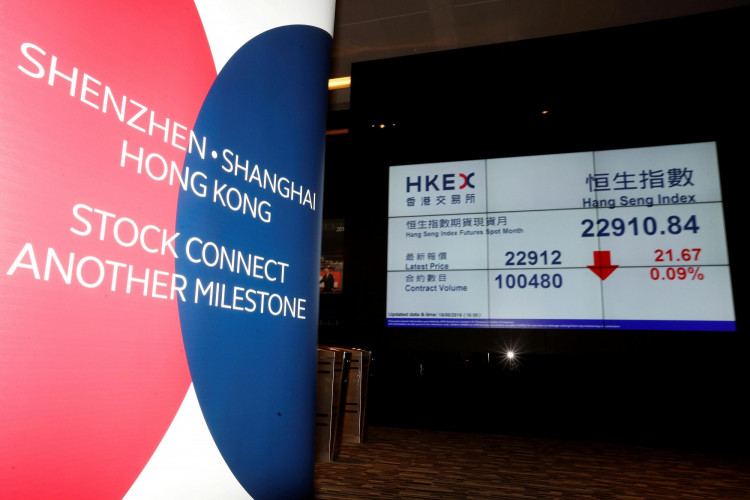Reuters - Asia share indexes climbed Monday with the broad regional index touching a record on hopes for imminent coronavirus vaccines - but worries over the effect of economic lockdowns and uncertainty over U.S. stimulus capped gains.
A top official of the U.S. government's vaccine development effort said Sunday the first vaccines could be given to U.S. health care workers and others mid-December.
Despite the backdrop of accelerating COVID-19 infections in the U.S., the forecast helped to raise hopes that lockdowns that have paralyzed the world economy could be nearing an end.
"With the vaccine on its way and the likelihood that economic damage being done by the virus will lift, we'll still have in place substantial support from central banks and governments. And that is an economic sweet spot that should see a significant economic bounce," chief market strategist at CMC Markets in Sydney Michael McCarthy said.
"It's fascinating that investors are willing to focus on that aspect. It does require some pretty heavy squinting, including looking through the rising infection rates that we're seeing right now. But there is a real optimism around it."
U.S. COVID-19 cases topped 12 million over the weekend and more than 255,000 have died.
MSCI's broadest index of Asia-Pacific shares outside Japan was up 0.56% Monday - pushing past a previous record Friday.
Seoul's Kospi was 1.82% higher as an optimistic earnings outlook for South Korea chip companies drove gains.
Japan markets are closed for a holiday but Nikkei futures added 0.19% to 25,795.
The regional index also got a boost from Australia share prices which gained 0.51% as the country eased some COVID-19 restrictions. Most of the country has seen no new community infections or deaths in several weeks.
China blue chips added 0.69%. Hong Kong's Hang Seng was an outlier - edging down 0.2%.
While most regional indexes were up Monday, sentiment was fragile as monetary and fiscal help for the U.S. economy remained elusive.
U.S. Treasury Secretary Steven Mnuchin said Thursday that pandemic lending programs at the Federal Reserve would expire Dec. 31 - putting the outgoing Trump administration at odds with the central bank and potentially adding stress to the economy.
"Discussion is only beginning and may take some time if the recent partisan disagreements over the composition and magnitude of fiscal spending are any indication," ANZ said.
U.S. e-mini futures for the S&P 500 were 0.26% higher at 3,563 Monday after U.S. share indexes fell Friday on a combination of dwindling aid for the U.S. economy and rising virus infection rates.
The Dow Jones Industrial Average dropped 0.75%, the S&P 500 fell 0.68% and the Nasdaq composite ended down 0.42%.
In currency markets, a rise in the safe-haven yen underscored nagging investor concerns. The dollar softened 0.1% to 103.75 while the euro gained 0.14% on the day to $1.1870.
The dollar index, which tracks the U.S. unit against a basket of six comparative currencies was down at 92.255.
U.S. crude eased less than 0.1% to $42.40 per barrel and Brent crude rose 0.18% to $45.04 per barrel. Spot gold added 0.06% to $1,871.69 per ounce.





